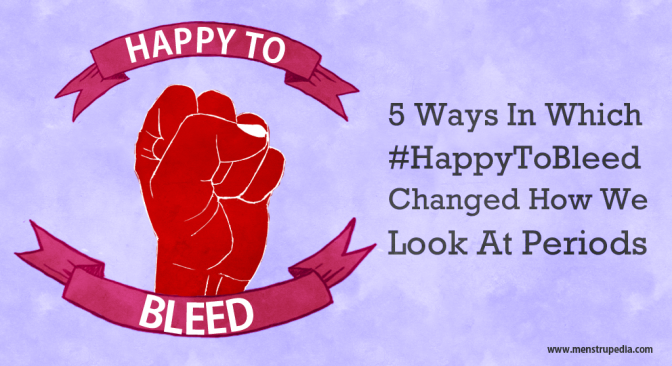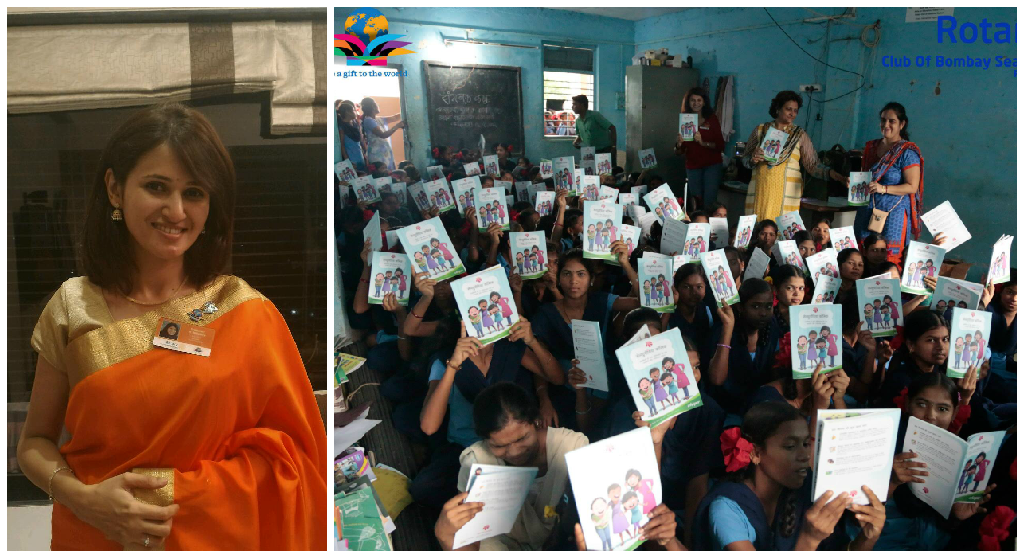Sitting in a hospital waiting room, my mother broached the topic that had been scuttling in silent waters between us both until then.
[inlinetweet prefix=”” tweeter=”” suffix=””]“So, how do you use that thing?”[/inlinetweet]
Finally. Here was the question I had been waiting for her to hurl my way. Yes, she was of course referring to that pink, little wondrous menstrual cup that I had been quietly raving about. Yes, all her questions about it were drenched in euphemisms and tangential references. But she had eventually outgrown her own trepidations of moral judgment and had mentioned the unmentionable!
Only months ago I had been dreading about even telling her that I was considering using a menstrual cup. And two months later, here she was, asking questions that would make even me crumble into a crimson-faced pool of embarrassment. After dodging her invasive questions for twenty minutes where I explained the workings of a menstrual cup, I kept wondering about what had fuelled this magical transformation.
Rewind to One Week Ago: Social media was abuzz with #HappyToBleed. Women across communities, religions, cultures and age-groups had stepped out of their imagined thresholds and firmly whipped out their reasoned arguments against the blatant practice of not letting menstruating women inside places of worship. They fought with their voices loud and clear. Be it on placards, television channels, Facebook posts or through the 140 limited characters of Twitter, their voice of protest was full-throttled. And it did not go unnoticed. [inlinetweet prefix=”” tweeter=”” suffix=””]A mere social media campaign had finally gotten everyone talking.[/inlinetweet] Here are some of the life-changing incidents that transpired and deepened my conviction about being a part of these conversations:
- A Ballistic Mother – In the backdrop of all these furore-driven conversations, my usually quiet mother turned on her tigress mode. Though she did not agree with all the different axes of my argument, she was offended by the remarks about inventing scanners to check menstruating women. Prayar Gopalakrishnan, the newly-appointed chief of the Sabarimala Dewasom Board, she opined, owed an apology for treating women’s bodies with disdain and disrespect. Apart from seeing my mother speak out blatantly (even on her brand new Facebook account), it also opened up the murky and contested space of dialogue around the female body. After this, my mother and I let go of our culturally-indoctrinated inhibitions and carried out a perfectly adult and sane conversation about menstrual products, religious restrictions and the changing dynamics of women’s rights in the landscape of present-day India.
- Neighbour Aunty’s Interest is Piqued – Even my perpetually lackadaisical neighbour aunty who is barely aware of my mortal existence wanted to know what all this hullabaloo was about. The television-set in her house was blaring out the fiery news coverage of the campaign and its noise tore through the walls of our house. Our eyes met for a brief while the next day and aunty catapulted questions at me from the balcony and left only after I had given her satisfactory answers.
-
 Rankled Up My Chauvinist of an Uncle – A great outcome of the #HappyToBleed movement was that even men jumped right into the bandwagon of women’s rights. While several men posted photographs of them holding placards with #HappyToBleed, expressing their solidarity with this movement, it also inflamed several others. Even if some of them were not entirely convinced about the cause and its motives, it was commendable that they even pitched their A campaign needs to get people’s sensibilities stirred, if not shaken. Over time, dissent helps those who start social campaigns rethink their stance or re-frame their initial conceptualizations. Yes, in the process, I got branded as a ‘Women’s Rights Person’, but instead of taking offence, I perceive this as a sign of acknowledgment of the work I have been trying to do.
Rankled Up My Chauvinist of an Uncle – A great outcome of the #HappyToBleed movement was that even men jumped right into the bandwagon of women’s rights. While several men posted photographs of them holding placards with #HappyToBleed, expressing their solidarity with this movement, it also inflamed several others. Even if some of them were not entirely convinced about the cause and its motives, it was commendable that they even pitched their A campaign needs to get people’s sensibilities stirred, if not shaken. Over time, dissent helps those who start social campaigns rethink their stance or re-frame their initial conceptualizations. Yes, in the process, I got branded as a ‘Women’s Rights Person’, but instead of taking offence, I perceive this as a sign of acknowledgment of the work I have been trying to do. - We All Said ‘PERIOD’ Out Loud – It was indeed overwhelming to see words and phrases like ‘menstruation’, ‘period’ and ‘menstruating women’ being thrown around with minimal discomfort, even on live television! [inlinetweet prefix=”” tweeter=”” suffix=””]The men didn’t flinch an inch or bat an eyelid.[/inlinetweet] For a movement that aimed to break the silence around women’s natural bodily processes, the mere enunciation of these words brought them out into everyday lexicon. This is one of the first steps in normalizing the otherwise shameful discourse that surrounds menstruation.
- “Will You Be My Facebook Friend?” – When the Internet was morphing into a hotbed of politico-religious conversations, blood-thirsty fights and rebellious arguments, several men took it as an opportunity to ask if we “can plisss to be frannnds” with them on Facebook. They assured us that after we befriended them, we could continue waging this bloody war against patriarchy. Of course.[inlinetweet prefix=”” tweeter=”” suffix=””] We were liberal women who had chosen to speak unabashedly about our bodies. [/inlinetweet]That most definitely meant that we were available for anyone to befriend us, and that our ‘moral’ antecedents were under suspicion.
Despite the looming problem of translating this solely online movement into its offline possibilities, what, if utilized the right way. It started the much-needed conversation around menstrual taboos in India; if these critical conversations are sustained, they can definitely be a harbinger of change. My mother has started talking about it, my neighbour aunty appears to be interested about the cause, men around me are feeling unsettled…[inlinetweet prefix=”” tweeter=”” suffix=””] the whispers will soon give way to war chants.[/inlinetweet]
Disclaimer: Views expressed here are of the author alone and do not necessarily represent that of the brand.
Author: Sharmad a Shastry
a Shastry
Sharmada is a reclusive writer and poet from Bengaluru. She works with Pasand, a social enterprise in the areas of menstrual and reproductive health. You can drop her an e-mail at [email protected] or just message her on Facebook!
Editor: Divya Rosaline







